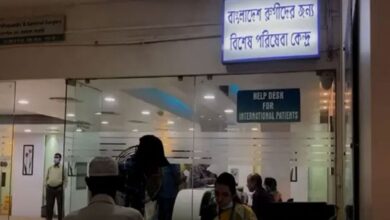What is ‘digital arrest’? Here’s what Indian PM Modi said about it
The fraudulent operations often feature scammers who create a convincing environment, appearing on screen in setups mimicking police stations or tax offices, complete with uniforms and fake ID cards.
Indian Prime Minister Narendra Modi has issued a warning regarding a new online fraud dubbed “digital arrest,” which has reportedly defrauded individuals of millions of rupees in the country.
The scam involves fraudsters reaching out to victims via video calls, posing as police or tax officials and falsely accusing them of criminal activities, reports BBC.
Modi explained that the scammers instruct their victims to remain at home, asserting they are under a “digital arrest” and telling them not to contact anyone, it said.
The Indian prime minister emphasised that digital arrest does not exist in Indian law, and no enforcement agency would ever ask citizens for personal details by phone or video call.
The fraudulent operations often feature scammers who create a convincing environment, appearing on screen in setups mimicking police stations or tax offices, complete with uniforms and fake ID cards. They typically claim that the victim is involved in illegal activities, such as sending parcels containing drugs, or linking their phone to criminal acts.
Reports of deepfake videos and falsified arrest warrants being used as part of the scam have also emerged, the BBC report said.
The alarming rise in these “digital arrest” incidents has prompted investigations. In August, Bengaluru police apprehended several individuals after a victim reported being scammed out of over 20 million rupees. The fraudsters had threatened the victim with legal repercussions for an alleged parcel containing drugs that had supposedly been seized, it added.
In light of this troubling trend, Indian Prime Minister Modi advised citizens to take three key actions to protect themselves: “First, stay calm and do not panic. Record or take a screen recording if possible. Second, remember that no government agency will threaten you online. Third, take action by calling the national cyber helpline and also inform police about the crime”.





